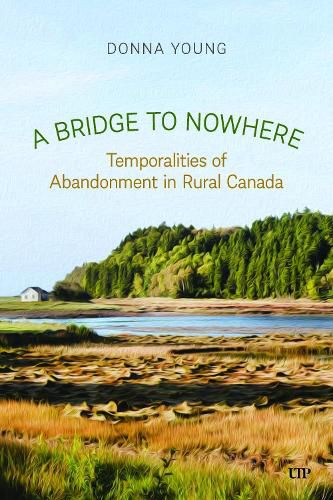Readings Newsletter
Become a Readings Member to make your shopping experience even easier.
Sign in or sign up for free!
You’re not far away from qualifying for FREE standard shipping within Australia
You’ve qualified for FREE standard shipping within Australia
The cart is loading…






Artfully written and meticulously crafted, A Bridge to Nowhere explores the lives of men and women in isolated settlements across Canada, examining how their experiences are shaped by memory, precarity, and poverty. Following men abandoned at remote rail sidings in western Canada and women left in rural settlements in northern New Brunswick, Donna Young presents a powerful and unflinching Canadian story that critically analyses how poverty is represented in anthropological studies. Based on research conducted in the 1980s and 1990s, this innovative ethnography centres each chapter on a specific place or individual, developing an analysis anchored in memory and relationality. Young deftly connects the precariousness of these communities to the extraction of primary resources in the twentieth century, while also addressing the gendered spaces and labour conditions that define their lives. In navigating the complex and often contradictory forces at play, the book engages with a storied loneliness set against rural landscapes and regional sensibilities. honours the emotional and social structures embedded in the landscape, capturing the intensity of precarious living.
$9.00 standard shipping within Australia
FREE standard shipping within Australia for orders over $100.00
Express & International shipping calculated at checkout
Artfully written and meticulously crafted, A Bridge to Nowhere explores the lives of men and women in isolated settlements across Canada, examining how their experiences are shaped by memory, precarity, and poverty. Following men abandoned at remote rail sidings in western Canada and women left in rural settlements in northern New Brunswick, Donna Young presents a powerful and unflinching Canadian story that critically analyses how poverty is represented in anthropological studies. Based on research conducted in the 1980s and 1990s, this innovative ethnography centres each chapter on a specific place or individual, developing an analysis anchored in memory and relationality. Young deftly connects the precariousness of these communities to the extraction of primary resources in the twentieth century, while also addressing the gendered spaces and labour conditions that define their lives. In navigating the complex and often contradictory forces at play, the book engages with a storied loneliness set against rural landscapes and regional sensibilities. honours the emotional and social structures embedded in the landscape, capturing the intensity of precarious living.